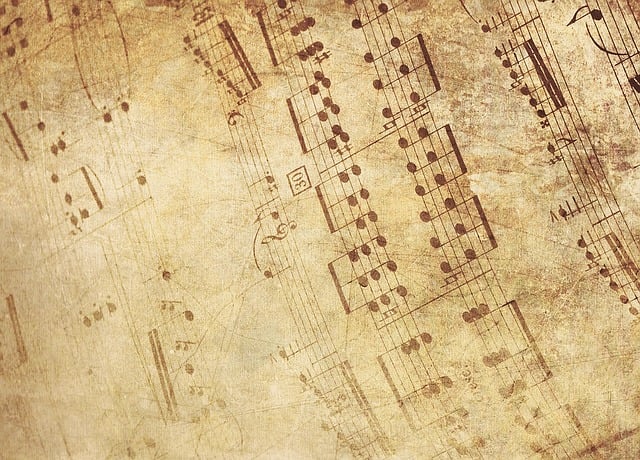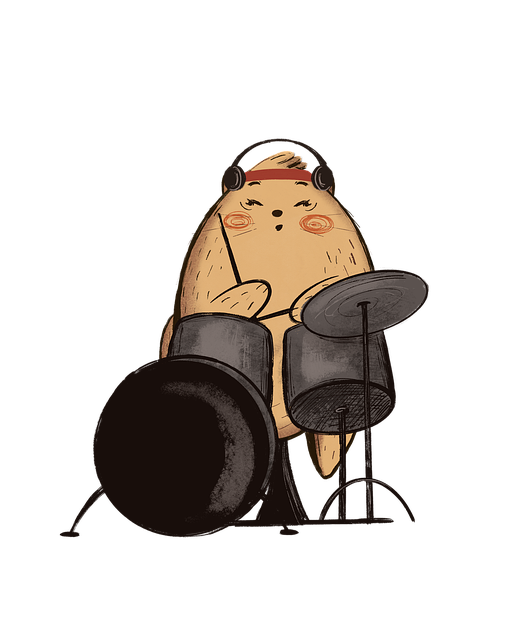The integration of Artificial Intelligence (AI) into music production has dramatically transformed the creative process for ai musicians. AI tools enhance productivity, generate unique musical elements, and analyze vast datasets to inform composition decisions, saving time and inspiring exploration. This technology democratizes advanced music creation, fostering unprecedented levels of productivity. However, ethical considerations regarding authorship, creativity, and intellectual property rights are crucial as AI continues to reshape the industry.
“Welcome to the future of music creation! This blog is a comprehensive guide for musicians and producers navigating the exciting world of AI music tools. From understanding the fundamentals of AI composition to exploring its immense benefits in production, we delve into how these technologies are revolutionizing creative processes. Discover AI’s role in sound design, ethical debates, and its potential to shape the music industry. Uncover a new era where ai musicians collaborate, innovate, and push artistic boundaries.”
- Understanding AI Music Tools: A New Era for Musicians
- The Benefits of AI in Music Production and Composition
- AI Applications: Enhancing Sound Design and Creative Processes
- Navigating the Future: Ethical Considerations and AI's Role in Music Industry Evolution
Understanding AI Music Tools: A New Era for Musicians

The integration of Artificial Intelligence (AI) into music production has marked a new era for ai musicians, revolutionizing the creative process and opening up endless possibilities. AI music tools are designed to assist and inspire, offering an innovative approach to composition, arrangement, and sound design. These tools utilize advanced algorithms to generate melodies, harmonies, and even entire songs, providing a fresh perspective on musical creation.
For musicians, AI represents a powerful ally that can enhance their creativity and streamline production. With its ability to analyze vast amounts of music data, AI can offer unique insights, suggest new ideas, and automate repetitive tasks. This not only saves time but also encourages experimentation, allowing ai musicians to focus more on their artistic vision and less on technical constraints.
The Benefits of AI in Music Production and Composition

The integration of Artificial Intelligence (AI) into music production and composition has revolutionized the creative process for many ai musicians. One of the key benefits is its ability to enhance productivity; AI tools can generate initial drafts of compositions, offer suggestions for improvements, and even create unique musical elements tailored to the user’s preferences. This not only saves time but also provides a fresh perspective, inspiring musicians to explore new sonic landscapes.
Additionally, AI models excel at analyzing vast amounts of existing music data, allowing them to identify patterns and styles. This knowledge can be leveraged to assist composers in making informed decisions, suggesting chord progressions, melodies, or even arranging songs in ways that align with the artist’s vision. With these tools, ai musicians can experiment, refine, and perfect their creations, ultimately elevating the quality of their work.
AI Applications: Enhancing Sound Design and Creative Processes

Artificial Intelligence (AI) has emerged as a powerful ally for ai musicians and music producers, revolutionizing sound design and creative processes. By leveraging AI tools, musicians can explore new sonic territories and push the boundaries of musical expression. These tools offer an array of capabilities, from generating unique instrument sounds and compositions to enhancing mix and mastering tasks.
AI algorithms can analyze vast datasets of musical patterns and styles, enabling them to create innovative and diverse audio content. This technology allows for more efficient and experimental music creation, providing ai musicians with a new level of creativity and productivity. With AI, the process of sound design becomes more intuitive and accessible, opening doors to exciting possibilities for musical storytelling and composition.
Navigating the Future: Ethical Considerations and AI's Role in Music Industry Evolution

As we navigate the future, artificial intelligence (AI) is revolutionizing various industries, and the music sector is no exception. The integration of AI in music production offers immense potential for both ai musicians and industry professionals. From generating melodic compositions to enhancing sound quality, these tools are transforming creative processes. However, it’s crucial to approach this evolution with ethical considerations.
The role of AI in the music industry raises questions about authorship, creativity, and intellectual property rights. As AI algorithms generate music, ensuring proper credit and fair compensation for all contributors becomes essential. By establishing guidelines and regulations, we can foster a harmonious relationship between technology and human artistry, allowing ai musicians to thrive while maintaining the integrity of musical expression.
In conclusion, AI music tools are transforming the landscape for ai musicians, offering unprecedented opportunities in production, composition, and sound design. As we navigate this new era, it’s essential to consider both the benefits and ethical implications. The future of music holds immense potential, with AI playing a pivotal role in fostering creativity and innovation among musicians worldwide. Embracing these tools responsibly will shape a vibrant and diverse musical tapestry for generations to come.
